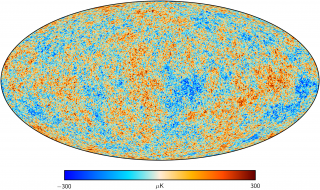Bibcode
Iglesias-Groth, S.; Esposito, M.
Bibliographical reference
The Astrophysical Journal Letters, Volume 776, Issue 1, article id. L2, 4 pp. (2013).
Advertised on:
10
2013
Citations
19
Refereed citations
16
Description
IRAS 01005+7910 is a carbon-rich protoplanetary nebula with a recently
reported detection of mid-IR vibrational transitions of the fullerene
C60 by Zhang and Kwok. We present new high spectral
resolution (R ~ 57, 000) observations of this object obtained at the 3.6
m Telescopio Nazionale Galileo, showing the presence of two absorption
bands at 9577 and 9632 Å which are consistent with laboratory
measurements of the C_{60}^+ cation. If these two bands were produced by
C_{60}^+ in the material surrounding the central post-asymptotic giant
branch star, we estimate that ~1% of carbon could be trapped in this
ionized form of fullerenes which would be more abundant than the neutral
species in this protoplanetary nebulae. The central star with an
effective temperature of T >= 20, 000 K can provide the ionizing
photons required. These observations bring further evidence for the
presence of fullerenes in protoplanetary nebulae and suggest that a
significant production takes place in this late stage of stellar
evolution. Mid-IR bands of C_{60}^+ could be present in the 7-20 μm
spectrum of IRAS 01005+7910 and are also likely to be detected in the
spectra of planetary nebulae. High-resolution spectroscopy will be
required for a reliable determination of the excitation temperatures and
the relative abundance of neutral and ionized fullerenes in these
objects.
Related projects

Anisotropy of the Cosmic Microwave Background
The general goal of this project is to determine and characterize the spatial and spectral variations in the temperature and polarisation of the Cosmic Microwave Background in angular scales from several arcminutes to several degrees. The primordial matter density fluctuations which originated the structure in the matter distribution of the present
Rafael
Rebolo López